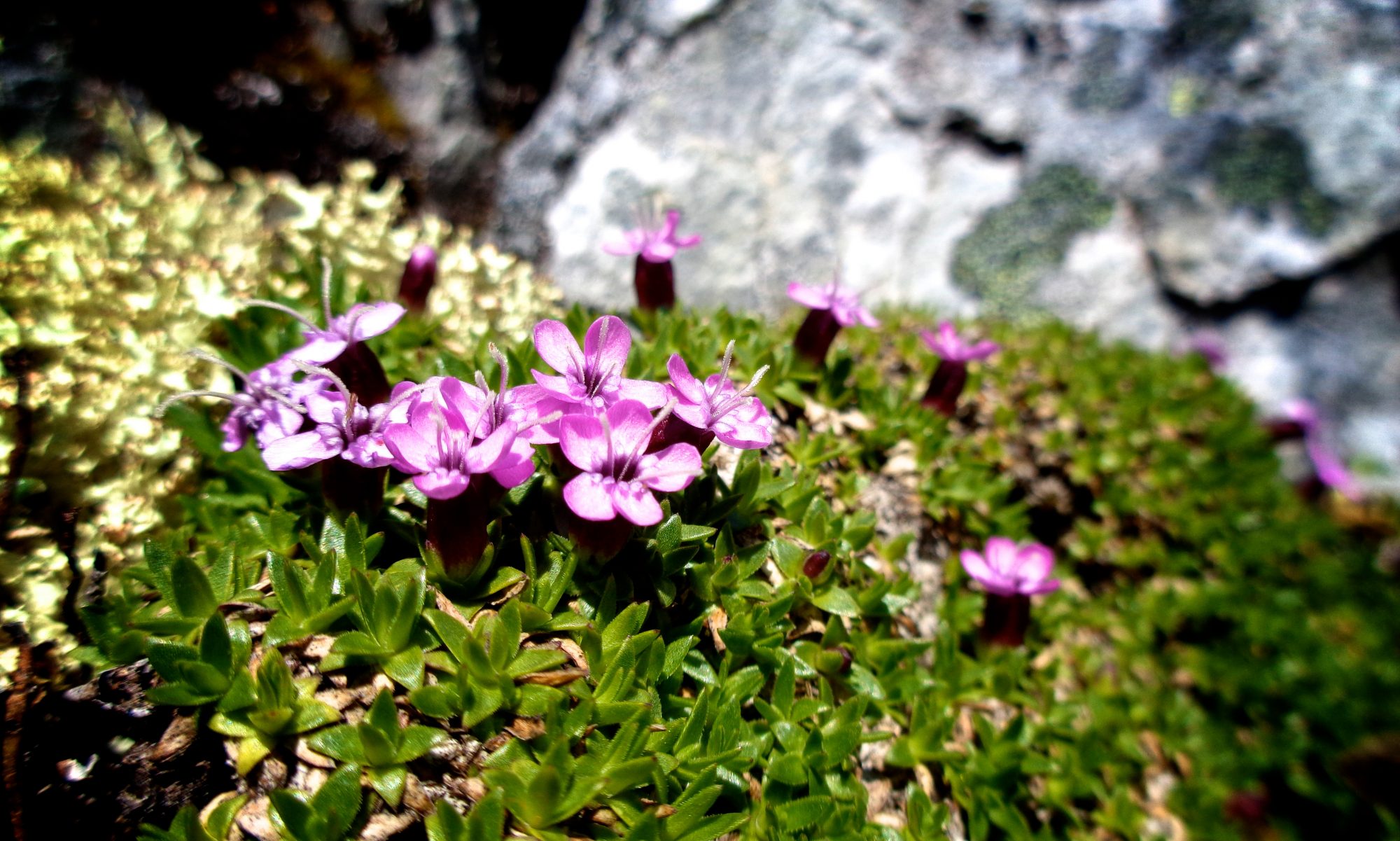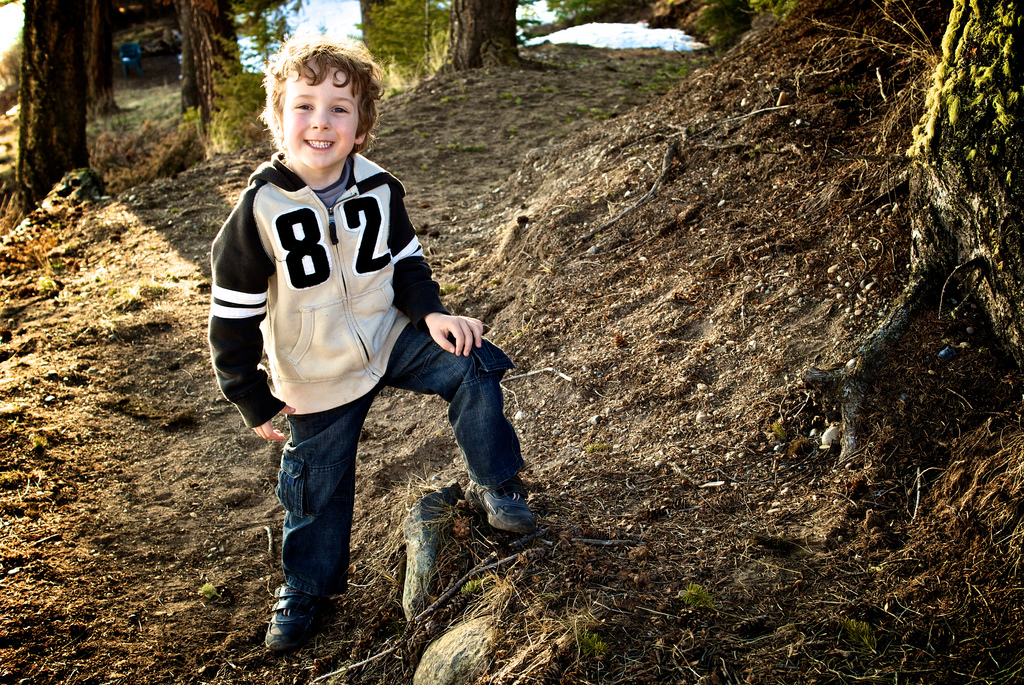Recently my twitter feed has had a number of #sciencespark tweets roll through it – tweets in which people describe the moment(s) in which their love for science first clicked.
Frankly, I have had trouble identifying my own #sciencespark because as far back as I can remember, I’ve always had a fascination for nature. Perhaps one tweet of the many among that hashtag that I can identify most with is this:
My #ScienceSpark was a combo of summer vacations at the cottage, Ranger Rick magazines, and an old Marine Invertebrates coffee table book
— Morgan Jackson (@BioInFocus) November 13, 2013
…because, with some variation, that’s a reasonable summary of story as well.
Many of my childhood summer days were spent outside literally and metaphorically turning over rocks to see what was underneath, or trying out the latest gadget that I had cobbled together from Dr. Zed’s instructions in Owl Magazine. At one point I even attempted (unsuccessful) mark-and-recapture experiments with grasshoppers that I caught. Besides the fact that the overall population of grasshoppers during a typical Alberta summer likely overwhelmed my meagre releases, I’m sure that the black permanent felt marker that I used to color their forewings didn’t do my research – or the grasshoppers – any favors either.
I also kept more animals in the house than you can likely imagine. These included mice, rats, hamsters, gerbils, budgies, a cockatiel, canaries, a dove, cats at various times, tropical fish, goldfish, and even a very short stint with Mexican jumping beans. Usually my family’s house was home to several of these species at once. Of course I bred many of these creatures – or, rather, they just did they will do left to their own devices – resulting in lines of cages in our hallway. Gerbils produce a lot of babies when left unchecked, as it turns out.
Mom, if you’re reading this – and really, who else reads this blog anyhow? – thanks for putting up with that!
Throughout my young life there were so many so-called #sciencesparks that I’d be hard-pressed to name only one that sent me along this trajectory. So I think I’d prefer to call this process #sciencefuel, because a spark implies the lighting of something that is not on fire. Fuel implies the maintenance of an existing flame.
My family was one that encouraged curiosity and investigation. Like I said, my mom put up with rodent cage wood shavings all over the floor. My dad would encourage my science fair work and would help me to find materials for my various other projects. They aided and abetted one of my major hobbies – fly fishing – that also required natural history knowledge in the forms of entomology and limnology. And our family spent a lot of time outside in general – on my uncle’s farm; helping (or getting in the way of) my dad with his beekeeping hobby; or camping in some pretty amazing places like the redwood forests of California, Death Valley, Jasper, or the west coast of Vancouver Island.
These activities, and many others, represented ongoing additions of fuel to the innate fire if inquiry that I believe most kids naturally have in them. In other words, I suspect that for most people it takes more than a single moment to drive a passion for anything, including science. In the case of science it takes engaged adults, encouragement and opportunity to read widely, permission to just explore and make a mess, and good resources (e.g. books, magazines, museums, national parks, community programs, etc.). Kids who are provided with this #sciencefuel on a steady and continual basis will develop into inquisitive and broad-minded adults.
Of course, even with regularly dropping another log into the innate fire, not every kid is going to specifically become a scientist. But every kid who grows up in this atmosphere will become someone who is capable of – and who enjoys – making an honest inquiry into the things that truly interest them and into phenomena that they are tuned to observe around them. Ultimately, these are the kind of people that our world needs more of, particularly as we face myriad growing challenges.
So if you have children of your own, or know children, or have opportunities to take your science or other passion to children, make the most of it. Add some #sciencefuel to the fire.


Nice post, Dezene! I think my sciencespark was all about seeing ferns and mosses while on canoe trips with my Dad. However, also continual exposure to field guides was pretty essential to me, as I wrote about here http://arthropodecology.com/2012/04/30/field-guides-and-natural-history/ So… yes, it is a combination of moments that helped develop the passion.
I hope my kids will also develop some love for science. I see it in some of them already – my daughter all of the sudden got excited about Darwin and has borrowed a microscope to look at the microstructures on shells and corals. This has developed in part because we seem to often talk about Darwin & his beagle voyage – we visited Down house (as a family) a couple of years ago, and I have some Darwin-ish books laying around. So, yeah, you have to have loads of fuel around so that when the spark hits, it really lights up. Awesome.
Thanks for the comment, Chris. Good point about field guides (and that’s still one of my favorite posts from your blog!). Important for me as well. This one in particular (which I still use, although somewhat out-of-date):
http://www.amazon.com/Birds-North-America-Guide-Identification/dp/0307136566/